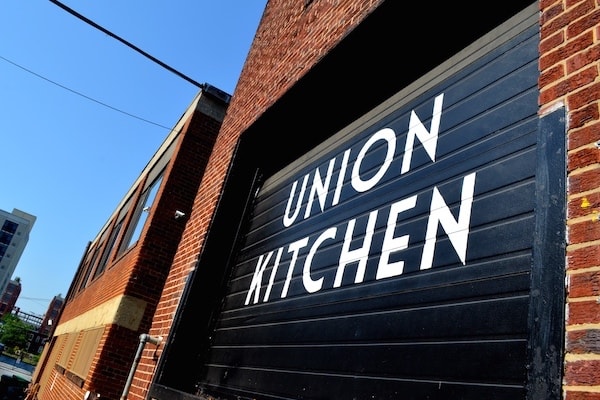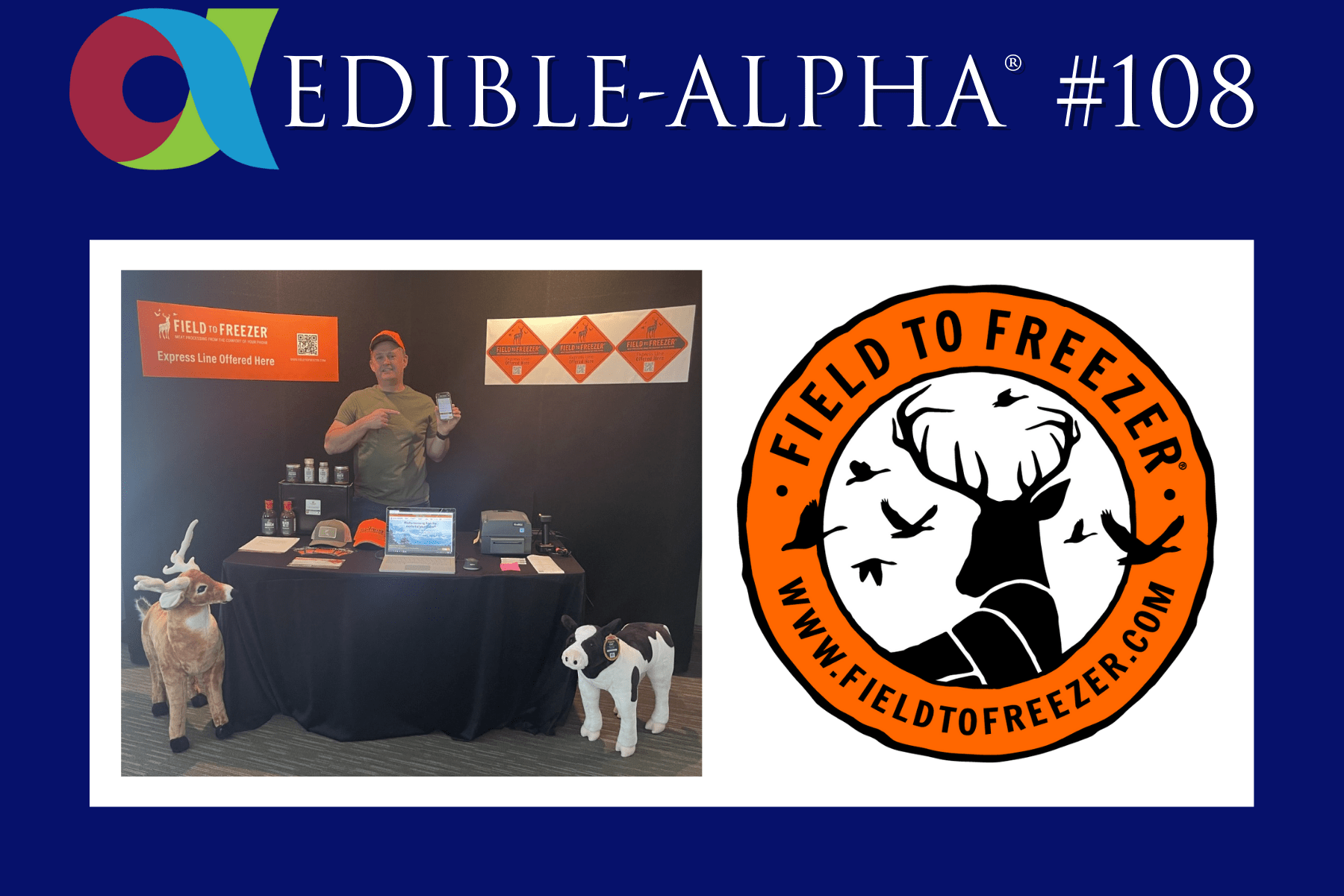Subscribe: Apple Podcasts | Spotify | Amazon Music | iHeartRadio | RSS | More
[vc_row][vc_column][vc_column_text]In Edible-Alpha® podcast #31, Tera interviews Cullen Gilchrist, founder and CEO of Union Kitchen, a shared-use kitchen and food business accelerator in in Washington D.C. Founded in 2012, Union Kitchen provides infrastructure, expertise and networks for food entrepreneurs so they can be successful as they scale up. Before founding Union Kitchen, Cullen gained invaluable business lessons – like relentlessly focusing on the customer and what they want first and foremost – while working as a Manager for SODEXO.
Cullen, his sister and a few others were looking for a commercial kitchen to make cookies for a pop-up café concept called Blind Dog Café. They were able to purchase access to a commissary kitchen from a company that was moving to a larger facility, greatly reducing their startup costs while giving them access to something that brand new could cost several million dollars. The space was too big for just them, and they found they were able to fill up the space with other small food businesses. They later developed an LLC to manage their own shared-use kitchen operation, charging a monthly subscription fee to their members.
Many of their tenants struggled to make money. Cullen found that while having a shared-use kitchen eliminates the need for capital for kitchen equipment, there are many other things food businesses need to raise capital for. Union Kitchen wanted to lower the other capital barriers for kitchens and in 2013 started providing their tenants’ products as one convenient local distributor, first for Whole Foods, and now for over 100 stores in the D.C. area. They have two trucks that they run seven days per week a couple times a day and try to get their businesses to hit the milestone of $10,000 in sales per month before focusing on further growth.
In part because they were not getting enough customer feedback, they opened a retail store in 2015, later opening several more. This has allowed Union Kitchens’ members to position their products and gain customer feedback in a real environment so they can become part of their target consumers’ daily routine, making them more accessible to the average consumer. The data they have on their members’ performance also helps Union Kitchen help its members improve their businesses.
Union Kitchen’s vertically integrated business and infrastructure – the kitchen, distribution and retail outlets – pairs with its accelerator program, which includes technical assistance, mentorship, classes and other means to help its members be successful. They have worked with over 400 businesses that have hired over 1,000 people and of those 400, 80 have opened their own storefronts. Some have even opened their own factories. Cullen estimates that over 20 of their businesses have each raised more than $1 million of capital to finance their growth.
Union Kitchen has found that the financial community is more willing to provide capital to their member businesses because their ecosystem has allowed their members to prove that their products have traction in the marketplace and their operations are solid. They have considered adding a co-packing facility to their ecosystem, though when they experimented with it they found it really difficult to do well. This is due in part to food businesses losing control when they co-pack by having another company’s staff and equipment dictate how their product is made, which can be especially difficult if the business has a unique product. For now, they are looking to keep doing what they are doing helping brands prove their viability in D.C. so they can scale regionally and nationally, providing for a huge economic impact along the way.[/vc_column_text][/vc_column][/vc_row]

